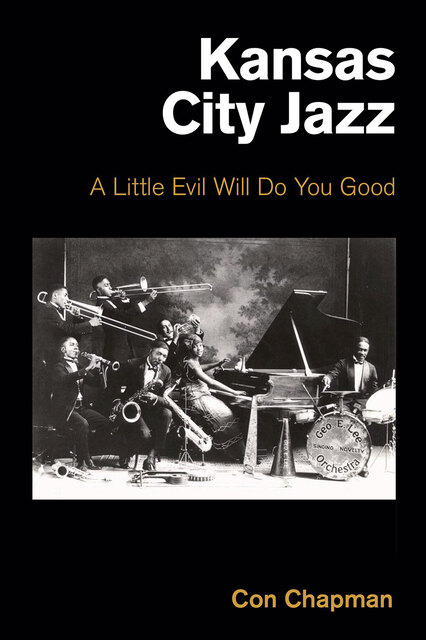Chapman/Kansas City Jazz, 3. Bennie Moten and his Competitors

Full description
The political changes that created the environment in which jazz thrived in Kansas City are described; in 1920, America embarked on an experiment in self-restraint, banning the manufacture and sale of intoxicating beverages, a reform that came to be called “Prohibition.” People didn’t stop drinking, however, and illegal bars known as “speakeasies” sprang up around the country to serve alcohol surreptitiously. Kansas City was controlled by a politician—Tom Pendergast—who had owned saloons and a wholesale liquor business before prohibition, and he continued his operations after Prohibition more profitably than before as illicit liquor sales weren’t taxed. Americans patronized speakeasies and, since jukeboxes hadn’t been developed yet, a need for live music to accompany the flow of liquor was filled by musicians who came to Kansas City where nightclubs stayed open due to Pendergast’s control of law enforcement while they were closed elsewhere. One musician—pianist Bennie Moten—became the most successful bandleader in Kansas City on the basis of his ties to Pendergast, his organizational and business skills, and his sense of musical tastes shifting from the two-beat structure of ragtime to a more fluid four-beat structure. Moten’s principal competitors in the early days of Kansas City jazz are identified, and the reasons—both substantive and idiosyncratic—why he prevailed over them are explored.
- typeImage
- created on
- file formatjpg
- file size152 KB
- container titleKansas City Jazz: A Little Evil Will Do You Good
- creatorCon Chapman
- isbn9781800502833 (eBook)
- publisherEquinox Publishing Ltd.
- publisher placeSheffield, United Kingdom
- rightsEquinox Publishing Ltd.
- series titlePopular Music History
- doi
We use cookies to analyze our traffic. Please decide if you are willing to accept cookies from our website. You can change this setting anytime in Privacy Settings.
